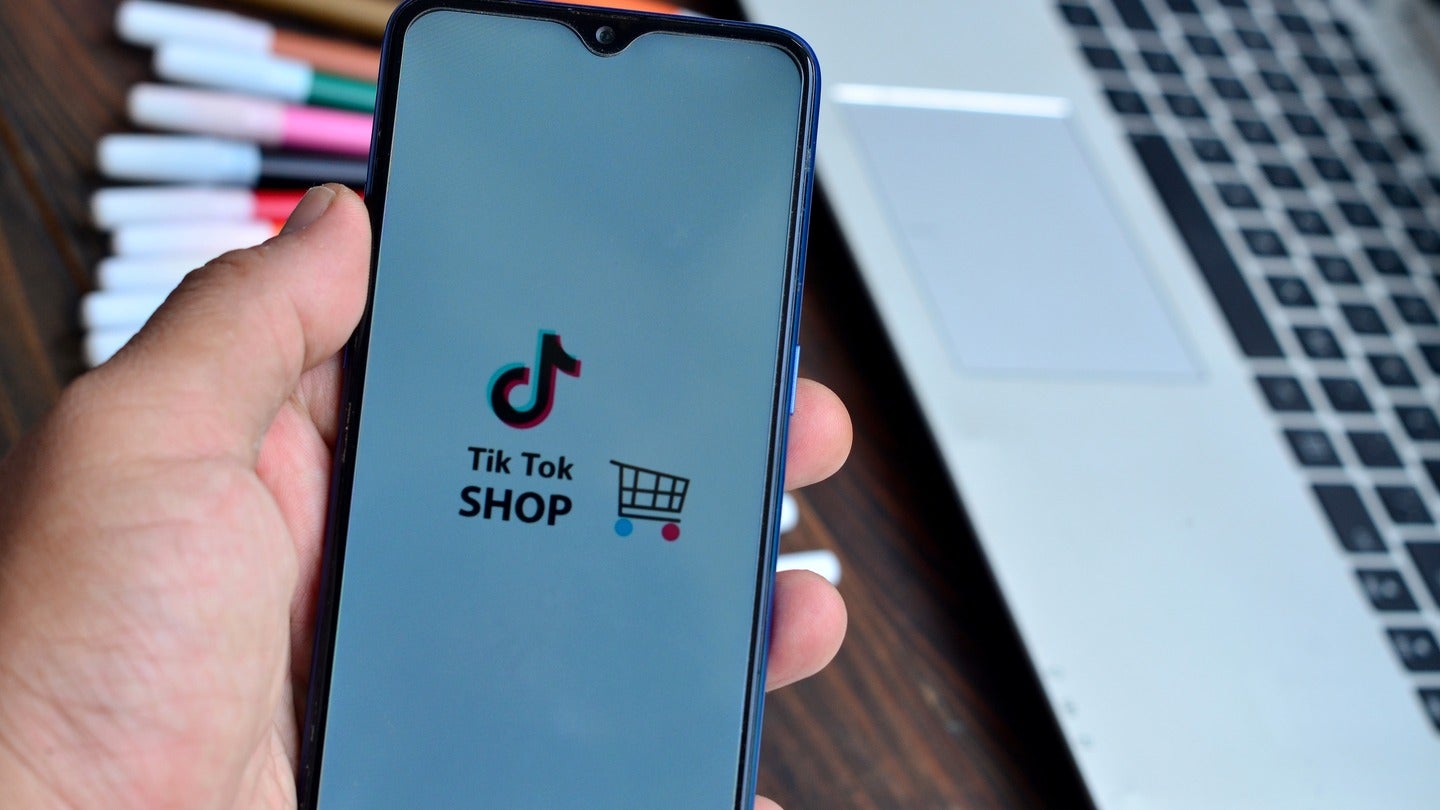
ByteDance’s TikTok has agreed to invest $1.5bn and take a controlling 75% stake in Indonesia’s GoTo Group, the companies announced today (11 December).
China’s social commerce giant will combine its Indonesian TikTok Shop business with GoTo’s e-commerce unit Tokopedia, enabling the former to restart its shopping app in its biggest online retail market.
According to Bloomberg, the Indonesian government has indicated approval for Byte Dance and GoTo’s joint venture.
In September, TikTok received a major blow after Indonesia introduced regulations to ban commerce on social media platforms, aimed at protecting the country’s 64 million micro, small and medium enterprises (MSMEs) and “[preventing] the domination of the algorithm”.
However, under the new joint venture, TikTok’s shopping features will be relaunched, being operated and maintained by the enlarged entity.
In its announcement, GoTo emphasised that more than 90% of the combined business’ merchants are MSMEs and that the companies will undertake a series of joint initiatives to support them, such as the promotion of Indonesian products and providing support across marketing, branding and sustainable business practices.
Brands enjoy early success
Elsewhere, the social commerce platform is providing a significant boost to retailers’ direct-to-consumer (DTC) sales, showing early promise in Q3 for upmarket fashion retailer Revolve Group and Japan’s Tarte Cosmetics, amongst others.
In its Q3 earnings call, Revolve Group said that its collaboration with TikTok Shop has shown “a great deal of promise in the early stages”.
“Net sales generated from TikTok Shop increased meaningfully in the third quarter compared to the second quarter of 2023, even though we only made available a limited selection of products on TikTok Shop,” CEO Michael Mente said.
Mente attributed the brand’s early success on the platform to the platform’s access to a large audience of Gen Z consumers, its conversion-driven nature, and its facilitation of “compelling” content creation and influencer engagement.
He noted that the brand’s beauty business was a “great category fit” for the platform, because “beauty is ideal for influencers to create compelling educational video content.”
“For years, the viral nature of TikTok has been a powerful catalyst for the beauty category and now with TikTok Shop, consumers can discover and purchase products in one place,” he said.
Another beauty brand enjoying success on the social commerce platform is Tarte, which saw several products sell out after the launch of its Black Friday discounts on 14 November.
“[TikTok Shop] is the first significant social commerce that we’ve seen in the US; we don’t have any other channels like this right now, where we’re both getting branding content out in the world and producing direct revenue from it,” explained Sam Kitain, Chief Marketing Officer at Tarte.
“TikTok Shop itself is supporting our DTC sales, but it’s also creating all of this content that goes with it,” she said, referring to TikTok Shop’s affiliate marketing programme. “You don’t get that from any other retail platform.”
The platform drove a 40% increase in the brand’s DTC sales in October alone – a result of affiliate influencer content, livestreams and video shopping ads.
Tarte has now made over 300,000 sales on the platform, while its overall cosmetics net sales were up 13.7% on the previous year, reaching $1.19bn, according to the nine-month earnings report of its parent company Kosé, released in mid-November.
This TikTok success is also thought to be driving brick-and-mortar purchases as well. “All of this content is creating brand awareness, so even if checking out in-app isn’t necessarily your shopping behaviour, you’re still consuming the content and remembering it for later when you walk into a Sephora or an Ulta or go to our website,” Kitain said.
The social commerce market is growing significantly, thanks in large part to the Chinese tech behemoth. According to Insider Intelligence, social commerce accounted for $68.92bn in sales and 5.9% of total e-commerce sales in the US in 2023 – up from $53.1bn and 5.1% in 2022. Total social commerce sales are expected to rise to $107.2bn and account for 7.2% of all e-commerce sales by 2025.
Our signals coverage is powered by GlobalData’s Thematic Engine, which tags millions of data items across six alternative datasets — patents, jobs, deals, company filings, social media mentions and news — to themes, sectors and companies. These signals enhance our predictive capabilities, helping us to identify the most disruptive threats across each of the sectors we cover and the companies best placed to succeed.



